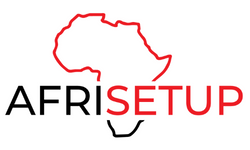

In Nigeria, the business landscape is rapidly evolving, with companies looking to expand their operations and tap into the local talent pool. However, navigating the complex Nigeria labor laws can be challenging, especially for foreign enterprises entering the Nigerian market. This is where an Employer of Record in Nigeria comes into play, offering a streamlined solution to manage employment and compliance issues efficiently while ensuring full adherence to local regulations.
Note: For over a decade, we have been helping foreign investors who want to do business in Nigeria without registering a company in Nigeria. Trust us as the go-to company for the success of your business in Nigeria. Let’s dive in.
Understanding Employer of Record Nigeria
An employer of record in Nigeria is a third-party organization that acts as the official employer for a company’s workforce. This means that while your business directs the day-to-day operations, EOR Nigeria handles all the employment-related tasks such as payroll, taxes, benefits, and compliance with labor laws in Nigeria.
Nigeria Labor Laws
Nigeria has solid labor legislation protecting employers and employees, shaping the employment landscape. Understanding employment laws in Nigeria is crucial when recruiting locally or through an EOR. Several key laws govern employee rights, employer responsibilities, and workplace standards. The following is an outline of the key labor laws that govern employment in Nigeria:
1. Labor Act: The core statute regulating employment working relationships. It covers pay, working hours, and termination processes.
2. Trade Union Statute: This statute oversees the registration and formation of trade unions while encouraging the use of collective bargaining methods.
3. The Trade Disputes Act provides facilities for arbitration, mediation, and other dispute resolution methods.
4. National Minimum Wage Act: Establishes a minimum wage to prevent exploitation and ensure fair compensation.
5. Employees’ Compensation Act: Mandates benefits and compensation for workers who sustain work-related injuries or diseases.
6. Pension Reform Act: This act requires businesses to enroll employees in contributory pension plans to secure future retirement benefits.
7. Factories Act: Upholds health and safety regulations in industrial and factory settings.
These regulations are the cornerstone of labor compliance in Nigeria and must be considered when hiring employees.
Hiring in Nigeria
Employment Law in Nigeria
In Nigeria, a contract of employment governs all employment relationships, outlining essential details such as job description, wages, working hours, and the type of employment—whether permanent, temporary, or project-based. Employers are legally required to provide a written employment agreement within three (3) months from the start date. A clear, well-drafted contract helps prevent legal disputes and classification issues.
Employees in Nigeria are broadly categorized into two groups:
• Workers: Those performing manual or clerical tasks covered under the Labor Act.
• Non-workers: Those in administrative, executive, technical, or professional roles, typically governed by individual contracts rather than the Labor Act.
While most employment contracts in Nigeria tend to be indefinite, fixed-term contracts are also permitted as long as they define all relevant terms. The employer and the employee must sign these written contracts to be legally binding.
Key elements that should be included in an employment contract include:
• Name(s) of the employer(s)
• Employee’s details and address
• Job title and date of commencement
• Nature of employment (full-time, part-time, fixed-term)
• Contract duration and expiry date for fixed-term contracts
• The notice period for termination
• Details of wages, including amount, calculation method, and pay frequency
• Work hours, sick leave policies, and conditions for incapacity and holiday pay
• Any other specific employment conditions or agreements
Prohibition of Forced Labor
Forced labor is prohibited in Nigeria, as protected under the 1999 Constitution and reinforced by the Labor Act. Every individual has the right to freedom from coercive work. However, exceptions exist, such as during emergencies, where the government may lawfully require citizens to work without being considered forced labor.
Transfer of Employment
Employees must offer written consent and have it endorsed by an authorized labor officer to transfer from one employer to another. For example, if one company acquires another, staff members must sign a letter of consent for the transaction to be valid.
Hiring Foreign Nationals
Employers must get proper work and residence permits for expatriate employees. Moreover, foreign companies must acquire approval for expatriate quotas before hiring non-Nigerians.
Visa Compliance and Penalties
Expatriates who fail to renew their work permits may face penalties such as three years in prison, a ₦500,000 fine, or both. Many businesses work with an international Professional Employer Organization (PEO) or Employer of Record to ensure compliance.
Employment in Nigeria
Working Hours in Nigeria
Employees are supposed to work eight hours a day, six days a week at most. They must take at least one day off for every seven days worked. They must also be given a one-hour break if they work more than six hours daily.
Employment contracts should include overtime and holiday compensation, clearly written to avoid disagreements and ensure global HR compliance.
Minimum Wage in Nigeria
Nigeria’s national minimum wage now stands at ₦70,000 per month (about $47), up from the previous amount of ₦30,000. Nigeria’s National Minimum Wage Act sets the legal minimum wage, which is reviewed periodically. Employers must stay up to date to remain competitive and legally compliant and avoid penalties
Equal Pay for Equal Work
Nigeria’s Labor Act requires equal compensation for equal work, regardless of gender, which promotes fairness and equality, boosts employee morale, and attracts top talent. Companies that want to establish a good reputation among Nigeria’s thriving workforce must adhere to these standards.
Leave Policies in Nigeria
Public Holidays in Nigeria
Employees enjoy paid leave during recognized public holidays, such as:
• New Year’s Day
• Good Friday
• Easter Monday
• Workers’ Day
• Eid al-Fitr
• Democracy Day
• Eid al-Adha
• Nigerian Independence Day
• Prophet’s Birthday (Mawlid)
• Christmas
• Boxing Day
Maternity Leave in Nigeria
Female employees are granted 12 weeks of paid maternity leave, including 6 weeks before and 6 weeks after childbirth. During these 12 weeks, female employees should receive 50% of their salary.
Paternity Leave in Nigeria
The Labor Act does not provide for paternity leave. However, in November 2022, the Federal Executive Council authorized a 14-day paid paternity leave for male civil servants. Some companies offer it voluntarily as part of their employee benefits to enhance retention.
Annual Leave in Nigeria
After a year of continuous employment, employees are entitled to at least six days of paid annual leave. Several firms provide additional days as a retention tactic.
Sick Leave in Nigeria
Workers are entitled to up to 12 days of paid sick leave as long as a doctor or other medical practitioner certifies it. The contract usually contains specifics.
Payroll & Taxes in Nigeria
Taxes in Nigeria
Nigeria’s tax year runs from January 1 to December 31. Companies must register with the tax authorities to obtain a Taxpayer Identification Number (TIN), which typically takes two to three weeks. Monthly tax deductions are made on the last day of the month.
Payroll in Nigeria
A monthly payment is mandatory, although pay cycles may also be weekly or bi-weekly. Payroll Options in Nigeria:
1. Remote Payroll: Add Nigerian staff to your main company payroll, but ensure full compliance with local laws.
2. In-house Payroll: Set up a Nigerian branch to manage payroll directly—this option can be complex and time-consuming.
3. Local Payroll Provider: Outsource to a Nigeria-based payroll firm, ensuring they understand local tax and labor rules.
4. Global Payroll Provider: Partnering with a global provider like Afrisetup ensures compliance with Nigerian payroll regulations.
PAYE (Income Tax)
Nigeria uses a Pay-As-You-Earn (PAYE) system to calculate personal income tax, with rates ranging from 7% to 24% for annual incomes between NGN 300,000 and over NGN 3.2 million.
Employers, including Nigeria Employer of Record (EOR), are responsible for correctly withholding and remitting these taxes. This process is part of the broader Nigeria withholding tax system, which ensures that taxes are deducted at the source.
Pension
The employer and the employee must contribute at least 10% and 8% of the employee’s monthly emoluments, including housing, transportation, and basic salary.
National Housing Fund (NHF)
As required by law, employees earning within than the minimum wage must contribute 2.5% of their base pay each month to the NHF. This program supports initiatives for affordable housing throughout Nigeria.
National Social Insurance Trust Fund (NSITF)
Employers are required to contribute 1% of payroll expenses to the National Social Insurance Trust Fund (NSITF). This fund compensates employees who pass away or suffer from occupational illnesses or injuries.
Industrial Training Funds (ITF)
Organizations with five or more employees or an annual revenue of NGN50 million must donate 1% of their payroll to the Industrial Training Fund (ITF). This contribution goes toward worker training and development in Nigeria.
Key Industries Utilizing EOR Services in Nigeria
As a foreign investor hoping to broaden your business in Nigeria, it’s essential to understand which sectors use our EOR services. Here are some:
1. Technology and IT Services
The tech industry in Nigeria is booming, with many companies leveraging EOR services to manage their remote and local workforce efficiently.
2. Oil and Gas
Given the regulatory complexities in the oil and gas sector, companies often rely on EOR services to ensure compliance and manage employment-related tasks.
3. Manufacturing
Manufacturing companies use EOR services to streamline their employment processes, especially when scaling operations or entering new markets.
4. Healthcare
Healthcare providers utilize EOR services to manage their workforce, ensuring compliance with stringent regulatory requirements.
5. Financial Services
In the financial sector, EOR services help manage employment-related risks and ensure compliance with local regulations.
Our Employer of Record Services in Nigeria
1. Payroll Management
We take full responsibility for managing Nigeria’s employee payroll. This includes calculating salaries, applying mandatory deductions such as taxes and pensions, and ensuring timely and accurate disbursements. Our team ensures all payroll activities comply with local regulations, helping you avoid errors and save valuable time.
2. Tax Compliance
We manage all aspects of taxation for your workforce in Nigeria. From calculating and withholding taxes to making statutory payments and submitting required tax filings, Afrisetup ensures full compliance with the Nigerian tax framework. Our tax professionals stay updated on local laws, ensuring your business meets all its fiscal obligations without hassle.
3. Employee Benefits Administration
We streamline employee benefits management by overseeing the full process—enrollment, claims, and regulatory compliance. We ensure Nigerian employees receive the benefits they are entitled to while aligning with statutory requirements and company policies.
4. Labor Law Compliance
Navigating employment law in Nigeria can be complex. Our experts ensure that your organization adheres to all local labor regulations, including drafting employment contracts, managing termination procedures, and addressing workplace legal requirements. With Afrisetup, you stay legally protected and professionally guided.
5. Risk Mitigation
We help your business reduce exposure to legal and regulatory risks. Our team continuously monitors changes in Nigerian labor and tax laws to provide proactive compliance support, ensuring that your operations align with current legal standards.
6. Administrative Support
Handling employee-related admin tasks can be burdensome. We offer end-to-end administrative support, including onboarding, offboarding, record maintenance, and employee file management. This frees up your internal team to focus on strategic business functions while we manage the day-to-day HR operations.
Benefits of Using Afrisetup’s Employer of Record in Nigeria
1. Access to a Larger Talent Pool
By using our employer of record services, your company can tap into Nigeria’s diverse and skilled workforce without the complexities of establishing a local entity. This opens up opportunities to find the best talent suited for specific roles, thereby enhancing the overall quality of your team.
2. Speed and Efficiency
Our employer of record Nigeria model, accelerates the hiring process by handling all the administrative tasks involved in employment. This allows companies to onboard new employees quickly and efficiently, reducing downtime and increasing productivity.
3. Legal and Regulatory Compliance
Nigeria has labor laws and regulations that companies must follow when hiring employees. We have in-depth knowledge of these laws and ensure that all employment practices comply with local requirements, avoiding potential legal issues.
4. Mitigating Risks
By entrusting us with employment responsibilities, your company mitigates risks of non-compliance, such as fines and legal disputes. We take on the liability for employment matters, providing a safety net for businesses.
5. Cost-Effectiveness
Setting up a legal entity in Nigeria involves significant costs, including registration fees, office space, and administrative expenses. Our employer of record Nigeria eliminates these overheads, offering a more cost-effective solution for companies looking to expand their operations.
6. Flexible Employment Solutions
As an employer of record service provider, we offer flexible employment solutions that enable companies to scale their workforce up or down according to their needs. This flexibility is particularly beneficial for businesses with fluctuating demands or those testing new markets.
FAQs
1. Can an employer of record in Nigeria help with compliance?
Yes, an EOR ensures that all employment practices comply with Nigerian labor laws, reducing the risk of legal issues and penalties.
2. What industries benefit most from Employer of Record in Nigeria?
Industries such as technology, finance, and manufacturing benefit significantly from EOR services due to their need for diverse and skilled workforces.
3. How do I get started with an employer of record in Nigeria?
To get started, research and select an EOR provider with experience in the Nigerian market and discuss your specific needs and requirements with them to tailor their services to your business.
4. What is the difference between EOR and PEO in Nigeria?
An Employer of Record in Nigeria (EOR) becomes the legal employer of your workers, handling all HR, payroll, and compliance tasks. A Professional Employer Organization (PEO), on the other hand, shares responsibilities with your company under a co-employment model. With a PEO, your company remains the legal employer, while the PEO helps manage HR duties.
5. What does an EOR do for international employees?
An EOR helps companies hire international staff, such as in Nigeria, without opening a local office. The EOR handles everything from contracts and payroll to taxes and legal compliance. This makes global hiring fast and hassle-free while reducing risk for businesses entering new markets.
Conclusion
Navigating the complexities of employment laws in Nigeria can be challenging, but our employer of record in Nigeria has simplified the process, helping businesses thrive. Whether you’re a multinational corporation or a small startup, partnering with us can provide significant benefits and help mitigate legal risks.
Get in touch today to simplify your hiring process and stay compliant.
